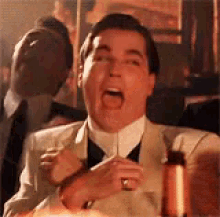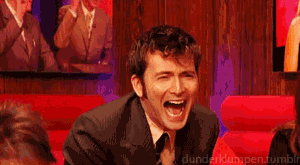The GOP has proven to be an even 'greater threat' to US democracy than Trump in 2021, experts warn
- Democracy experts are sounding the alarm.
- Republican-led legislatures nationwide are taking extraordinary steps to restrict voting.
- "The Republican party has proven to be a greater threat than Trump," one expert told Insider.
On his way out the door, Trump was impeached for a second time for inciting the riot. A week later, President Joe Biden was inaugurated, and some scholars of democracy were hopeful that Trump's departure would open the door for the GOP to hit the reset button. But those feelings of optimism didn't last long as Republicans continued to show unwavering loyalty to Trump and his "big lie," and as GOP-led legislatures nationwide pushed for laws to restrict voting in extraordinary ways.
Sheri Berman, a professor of political science at Barnard College and author of "Democracy and Dictatorship in Europe: From the Ancien Régime to the Present Day," told Insider she's become even "more pessimistic" about the future of American democracy in 2021.
"With Trump gone, I hoped the Republican party might recalibrate, moving away from his illiberal, anti-democratic and irrational behavior and embracing a conservative, but firmly reality-based and small 'd' democratic politics," Berman said. "That the Republican party has proven to be a greater threat than Trump — a single individual — bodes poorly for the health of American democracy."
'I don't think the average citizen understands the threat'
Brooke Hader, 18, votes for the first time since becoming old enough to be eligible, as she fills out her ballot during absentee early voting for the general election in Sterling Heights, Mich., Thursday, Oct. 29, 2020 David Goldman/AP
Only 16% of Americans say democracy is working well or extremely well, according to a February poll from The Associated Press-NORC Center for Public Affairs Research. The poll found that nearly half of Americans — 45% — think democracy isn't functioning properly. But it's less clear if Americans are cognizant of the escalating threat posed to the democratic process in the US by GOP efforts to make it harder to vote.
"I don't think the average citizen understands the threat because the average citizen doesn't have the time or the incentive to analyze what is going on politically at the national, state and local level on a daily basis," Berman said.
Berman was among more than 100 experts on democracy who signed a letter — published by the New America think tank on Tuesday — urging Democrats in Congress to suspend the filibuster and do whatever else is necessary to pass national voting and election-administration standards that would guarantee "the vote to all Americans equally, and prevent state legislatures from manipulating the rules in order to manufacture the result they want."
"The letter was necessary and appropriate — a way to warn those who don't study these issues of the danger of what is going on," Berman said.
Roosevelt University political scientist David Faris, who also signed the letter, in a recent interview with Vox expressed concern that "complacency has set in on the Democratic side and people are lulled into thinking things are normal and fine just because Biden's approval ratings are good."
"When people think of democracy dying, they think of some very dramatic event like Trump riding down Pennsylvania Avenue in a tank or something. That's not the reality here," Faris went on to say.
'It's absolutely right to sound the alarm'
In this Nov. 3, 2020, file photo voters cast their ballots under a giant mural at Robious Elementary school on Election Day, in Midlothian, Va. AP Photo/Steve Helber, File
Archon Fung, the Winthrop Laflin McCormack Professor of Citizenship and Self-Government at the Harvard Kennedy School, told Insider that the rising concerns about the state of democracy and GOP efforts to restrict vote is "warranted."
"It's absolutely right to sound the alarm," Fung said, applauding the democracy scholars who signed the letter.
"In terms of the basic issue of who gets to vote and how hard it is to vote, this is the most challenging period in American history in 50 years since the Voting Rights Act and the Civil Rights Act," Fung added. "We're back there again, unfortunately. The current manifestation is different, but many of the issues are the same. And the color of the people whose vote is at stake is very similar, also."
President Joe Biden has repeatedly made it clear that he's concerned about protecting voting rights against Republican attacks. He's pushing Congress to pass the For the People Act, even calling out members of his own party who are standing in the way of the bill. The expansive voting rights package passed in the House in early March, but it faces an uphill battle in the evenly-split Senate.
During a speech in Tulsa, Oklahoma, on Tuesday, Biden also announced that he's tapped Vice President Kamala Harris to spearhead the administration's efforts to shore up voting rights
"Democrats recognize the urgency of these issues, but the problem is the filibuster," Berman said, adding that Senate Republicans "won't agree to the necessary reforms to improve the functioning and legitimacy of the electoral process."
'This could be a moment in which we begin to create a better democracy than we've ever had'
Volunteers help voters drop off their ballots at the Maricopa County Recorder's Office in October 2020 in Phoenix, Arizona. Ross D. Franklin/AP
Without downplaying the scale of the problem, Fung said he's encouraged by the growing conversation in Washington, DC, on protecting voting rights. But he underscored that "a huge amount of worrisome activity" is occurring at the local or state level, while expressing concern about a relative lack of popular and grassroots activity on democracy issues.
To his point, between January 1 and mid-May, at least 14 states enacted 22 new laws that restrict access to the vote, a tracker from the Brennan Center for Justice showed. Overall, at least 389 restrictive bills have been introduced by lawmakers in 48 states in the 2021 legislative sessions.
The GOP seems "determined not only to restrict voting in ways they believe will benefit them, but even more frightening to increase partisan influence and oversight over the electoral process, again in order to be able to overturn election outcomes that they believe to be 'false,'" Berman said, denouncing these efforts as "direct threats to the most basic of democratic institutions — free and fair elections."
To that, Fung added: "The future is open and could go a lot of different ways, some of them very good and some of them very bad. The foundations of democracy could further erode, or this could be a moment in which we begin to create a better democracy than we've ever had."
The GOP has proven to be an even 'greater threat' to US democracy than Trump in 2021, experts warn
Democracy experts are sounding the alarm as Republican-led legislatures nationwide take extraordinary steps to restrict voting.








